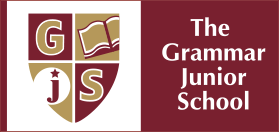CLASS 1
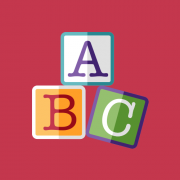
ENGLISH
Oral language
Pupils are encouraged to listen attentively and to participate in group discussions. They are taught to speak audibly and fluently with an increasing command of the English language. They are also taught to listen to others in class, to ask relevant questions and to follow instructions. They are encouraged to retell stories in their own words.
Spelling and Phonics
Pupils are taught to spell simple CVC words (consonant, vowel, consonant) and to use rhyme to spell. They are encouraged to apply high frequency words automatically. They learn to apply the graphemes taught to spell correctly.
Creative Writing
Pupils are taught to express themselves through written form. They are taught to write simple sentences using correct sentence structure and punctuation. They should be able to write a story with a beginning middle and end.
Reading and Comprehension
Pupils read daily, individually and in groups. They visit the library once a week to choose a book. Parents are advised to spend quality time with their children by reading their library book with them. They develop a pleasure in reading. Pupils are given a variety of passages to develop their comprehension skills. They are exposed to fiction and non-fiction passages, fairy tales and poetry. They learn to comprehend the passages and answer questions. They read books on a daily basis and are encouraged to read with expression and to use appropriate intonation.
Grammar and Punctuation
In their grammar lesson pupils are taught to punctuate correctly. They learn to use adjectives, common and proper nouns. They learn to join sentences using conjunctions.
Handwriting and Work Presentation
Children are taught to sit correctly in their seats holding a pencil correctly to write. They are taught to form lower-case and capitals correctly. They learn to start on the correct place on the page and to leave space between their words. They are encouraged to work legibly and neatly.
MATHEMATICS
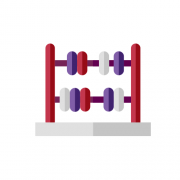
Number and Place Value
Pupils are taught to count, read and write numbers up to 100. They are taught to identify tens and units in 2-digit numbers.
Multiplication and Division
Pupils count in 2’s, 5’s and 10s by counting in groups or sets. They learn the concept of sharing and putting in groups.
Properties of Shapes
Pupils are taught to recognise 2-D and 3-D shapes and their properties. They learn to describe position, direction and movement including whole, half, quarter and three-quarter turns.
Problem Solving
The pupils are taught to solve one-step problems using addition, subtraction and multiplication.
Addition and Subtraction
Pupils learn to use number lines or a 100 grid to add and subtract mentally.
They learn the number bonds to make equations of 5,6,7,8,9,10 and 20. They gradually move on to mental addition and subtraction. They learn to add three numbers finding bonds of 10.
Measurement
Pupils learn to relate units of time such as months, weeks, days, hours. They are taught to tell the time (o’clock and half past) on both analogue and digital clocks. They learn length and height and weight using non-standard units. They learn the value of coins.
Fractions
Pupils are taught to recognise halves and quarters of shapes and to find half of a number.
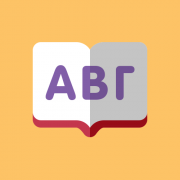
GREEK
The Greek lesson in the Grammar Junior School is of equal importance to the English lesson for the Greek-speaking pupils. We follow the guidelines set and use the books provided by the Cyprus Ministry of Education and Culture. The objective of the lesson is to learn the Greek language through Reading, Writing, Grammar and Vocabulary. Through the Greek lesson the GJS pupils also become familiar with and learn to appreciate Cyprus history, culture and traditions.
In Class 1, pupils learn to read, write their first sentences and express themselves orally through fairy tales and fun activities.
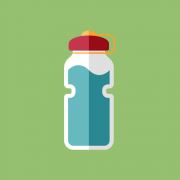
PHYSICAL EDUCATION
Fitness skills are acquired through positive play experiences. Pupils come into contact with sports like basketball, baseball and shot-put by using age appropriate equipment.
Coordination and balancing skills are enhanced by practising long jump, hurdles and wall climbing. They also learn the basic strokes in swimming.

SCIENCE
Plants
Pupils are taught to name deciduous and evergreen trees and wild flowers, parts of a plant and what plants need to grow.
Animals and Humans
Pupils are taught to identify carnivores and herbivores and identify common animals including fish, amphibians, reptiles and birds. They learn the basic parts of the human body and the five senses.
Every Day Materials
Pupils are taught to identify materials including wood, plastic, glass, metal, water and rock.
Seasonal Changes
Pupils observe and describe the weather across the four seasons.
Pre-historic Animals
The pupils learn the names of dinosaurs and to identify carnivores and herbivores. They learn about fossils and why dinosaurs have become extinct.

MUSIC
Pupils are taught to experiment and create music and to use their voices expressively by singing songs and nursery rhymes. They have fun making their own musical instruments from recycled materials.
They are encouraged to listen with concentration to recorded music. They also have the opportunity to take part in the choir at Christmas time.
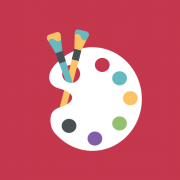
ART
Pupils are presented with opportunities to explore, create and express themselves in the areas of painting, printing, drawing, collage and modelling using clay and play dough. They work independently or in small groups using a variety of materials. They are supported by an adult but we never diminish their creativity by telling them what to do.
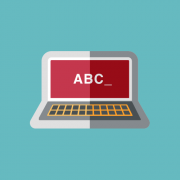
COMPUTERS
Our pupils follow the six year Funecole Programme and are taught the principals of information and computation, how digital systems work and how to put this knowledge to use through programming so they become active participants in a digital world.
